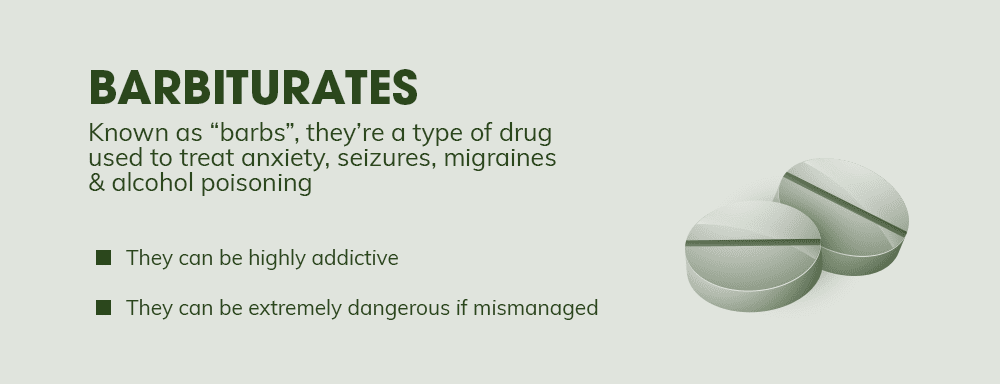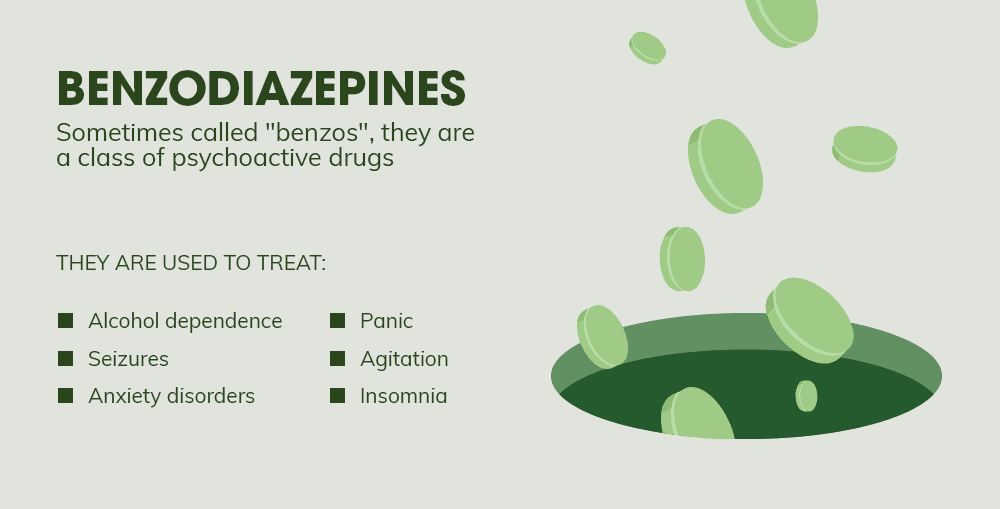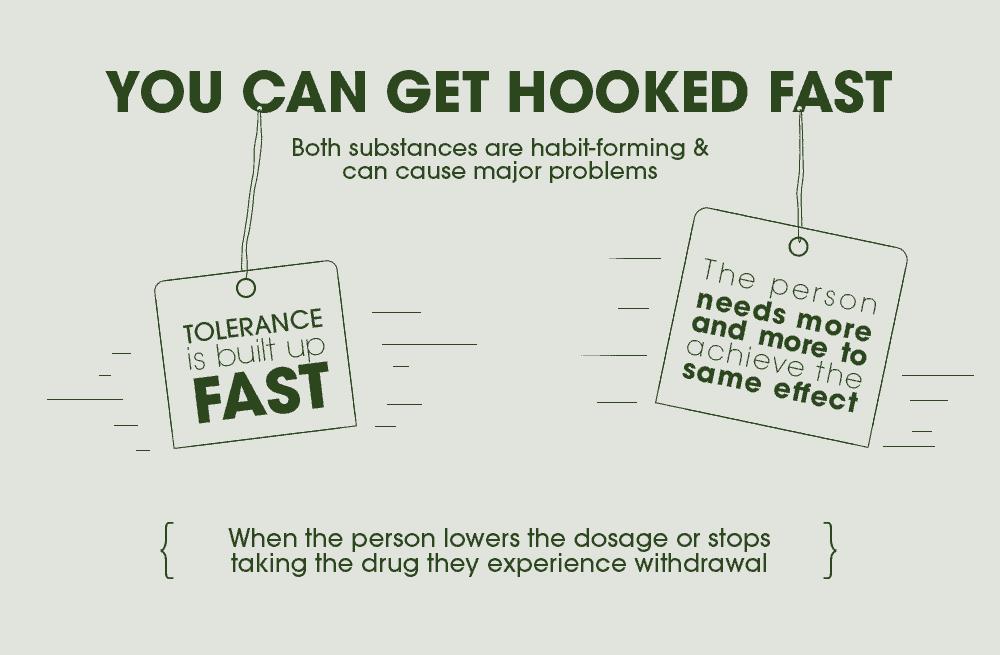People who struggle with various mental health issues can often find tremendous relief from medications that their doctors prescribe them. Barbiturates and benzodiazepines, also known as barbs and benzos, are two of the most common types of mental health medications doctors prescribe. Unfortunately, both of these drug classes can be highly addictive.
If you or a loved one struggles with prescription medication addiction, there is no better time to get help than now. At Northpoint Recovery, we know how important it is for our barb and benzo addiction treatment programs to offer supportive, compassionate care. When you step through the door of our center, you can be sure that our professionals will guide you on the road to recovery. Call 888.296.8976 to get started today.
A Common Mistake
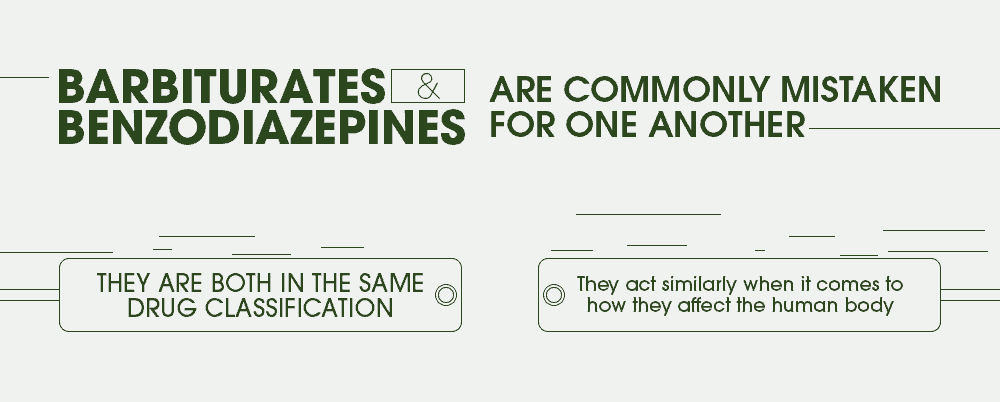
One common mistake people make is thinking that barbiturates and benzodiazepines are the same thing. While both types of drugs are central nervous system depressants, they work differently. Barbiturates slow down the activity of the brain and nerves by binding to a specific receptor. Benzodiazepines, on the other hand, work by increasing the effects of a neurotransmitter called gamma-aminobutyric acid (GABA).
Both types of drugs can effectively treat anxiety, insomnia, and seizures. Barbiturates once commonly treated these conditions but have largely been replaced by benzodiazepines due to their lower risk of addiction and overdose.
What Are Barbiturates?
Barbiturates are a type of medication that depresses the central nervous system. They were first made in 1864 and became widely used in the early 1900s as sedatives and general anesthetics. Barbiturates are categorized into two groups: short-acting and long-acting.
Common Barbs
Some of the most common barbiturate medications include:
- Secobarbital (Seconal)
- Pentobarbital (Nembutal)
- Amytal (amobarbital)
- Butabarbital (Butisol)
- Mephobarbital (Mebaral)
An Almost Sweeping Replacement
Benzodiazepines were first synthesized in 1955 and quickly became popular due to their low toxicity and perceived lack of addictive potential. By the 1970s, benzodiazepines had all but replaced barbiturates as the go-to medication for anxiety, insomnia, and seizures.
Barbiturates are still used in some cases, particularly when benzodiazepines are ineffective. They are also used in veterinary medicine and lethal injection drugs.
What Are Benzos?
Benzodiazepines are a type of medication that depresses the central nervous system. They work by increasing the effects of GABA neurotransmitters. Benzos are categorized into three groups: short-acting, intermediate-acting, and long-acting.
Common Benzodiazepines
Some of the most common benzodiazepines include:
- Alprazolam (Xanax)
- Diazepam (Valium)
- Lorazepam (Ativan)
- Temazepam (Restoril)
- Triazolam (Halcion)
Signs of Addiction
Both barbiturates and benzodiazepines can be habit-forming, and people who take them for extended periods may develop a tolerance to the drugs. Tolerance occurs when a person needs to take increasingly larger doses of a drug to achieve the same effects.
People who abuse barbiturates or benzodiazepines may also suffer from cognitive impairments, including memory problems, difficulty concentrating, and impaired decision-making.
Withdrawal Symptoms
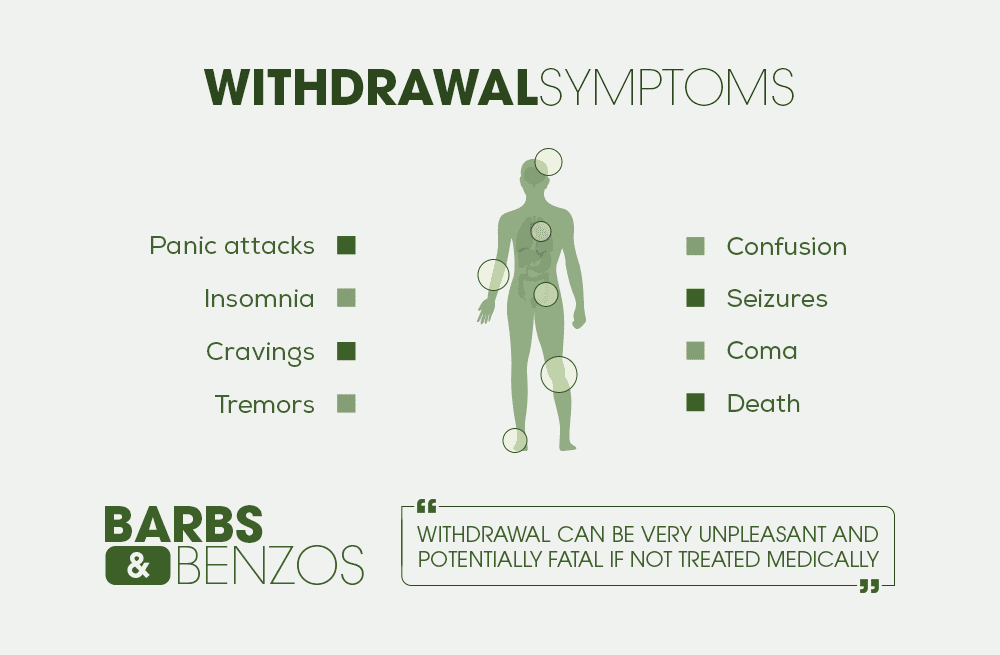
If a person suddenly stops taking barbs or benzos, they may experience withdrawal symptoms such as:
- Anxiety
- Insomnia
- Sweating
- Muscle pain
- Nausea and vomiting
- Seizures
- Psychosis
Withdrawal from barbiturates or benzodiazepines can be life-threatening, and it is important to detox under medical supervision.
Prescription Medication Addiction Treatment at Northpoint Recovery
If you or someone you love is struggling with an addiction to barbiturates or benzodiazepines, help is available. At Northpoint Recovery, we offer a variety of evidence-based treatment options for people who are struggling with prescription medication addiction. Our experienced and compassionate staff will work with you to create a personalized treatment plan that meets your unique needs.
There is no better time to find help than now. Take the first step toward a sober lifestyle today by calling 888.296.8976.


